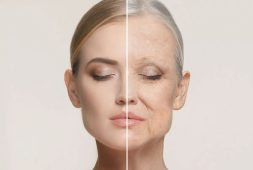
Daylight savings is on everyone’s mind now that the U.S. Senate has recently passed a bill that will make it permanent starting 2023. And while most people are extremely happy about this, doctors and sleep experts are even more happy about removing these seasonal time changes. But they also have their doubts about it too.
Most people struggle to get up in the wee hours of the morning during daylight savings time. So the fact that the senate has now passed the Sunshine Protection Act in what happens to be considered a very rare unanimous vote and may just become legal by November 2023 if President Biden actually signs the legislation. And this is definitely something to look forward to. This means that people will no longer have to keep moving back their clocks’ setting for daylight savings time, and instead, leave it in that “spring ahead” setting.
Should Daylight Saving Time Be Forever?
While doctors and sleep experts alike are happy about the idea of eliminating seasonal time changes, they are also worried about keeping daylight saving time permanent also means clocks will forever be stuck in the wrong time.
Director of the Sleep Center of Excellence at Columbia University Irving Medical Center in New York City, Marie-Pierre St-Onge, PhD, “I would love to stop seasonal clock change but have us stay on standard time.”
According to Dr. St-Onge, standard time is when the clocks are set back an hour in the fall, which is actually better aligned with the body’s circadian rhythm – or the natural sleep-wake cycles of people. She further explains that people biological clocks are “hardwired” for us to wake up when there’s light and to sleep when it’s dark. During standard time, there is more sunshine in the morning and less at night, which is better for people.
During daylight saving time, it does the opposite which means there is more sunshine in the evenings. Sleep experts worry about this countering our biological clocks in a way that will actually be harmful to our health.
After the Sunshine Protection Act was passed, the American Academy of Sleep Medicine (AASM) explained in a statement, “Current evidence best supports the adoption of year-round standard time, which aligns best with human circadian biology and provides distinct benefits for public health and safety.”
Health and Safety Issues That Are Associated With Changes In Time
AASM shares that each spring, the abrupt change in clocks is often associated with a wide range of public health and safety issues, such as increased number of heart attacks and strokes, motor vehicle crashes, and mood disorders.
For one, changes in time cause issues with sleep. According to a study published in the Journal of Applied Psychology, on the first week when people are forced to set their clocks ahead for daylight saving time, people tend to lose an average of 40 minutes of sleep at night. The same study also found that there was an increase in work-related injuries. But when time is switched back to standard time in the fall, people don’t lose sleep nor become more accident prone.
According to another study published in January 2020 in Current Biology, fatal accidents tend to become more common after the spring transition to daylight saving time. This same study also saw ‘a 6 percent increase in fatal traffic accidents during the week after the springtime shift to daylight saving time.’ The authors concluded that if seasonal time change is eliminated, it could prevent at least 28 fatal crashes per year.
Meanwhile, according to a study published in Sleep Medicine, during the first week after the shift to daylight saving time, the risk of heart attacks gets higher by 3 percent. But the study also found that there aren’t any changes in heart attack rates with the fall transition back to standard time.
If the bill is finally passed, the misalignment between people biological clocks and their sleep-wake cycles may become permanent due to the year-round daylight saving time. This could cause an increase in a wide-spread variety of health issues associated with circadian rhythm disruptions, such as obesity, type 2 diabetes, and dementia.
Associate professor and sleep researcher at the Perelman School of Medicine at the University of Pennsylvania in Philadelphia, Ilene M. Rosen, MD, said, “Daylight saving time increases our morning exposure to darkness, when we need to wake up, and evening exposure to sunlight, when we should be winding down for sleep.”
Rosen adds, “the daily cycle of light and darkness is the most powerful timing cue to help synchronize the body clock. So our circadian rhythm is disrupted by being exposed to more light in the evening during daylight saving time, which negatively impacts the health and safety of Americans.”



